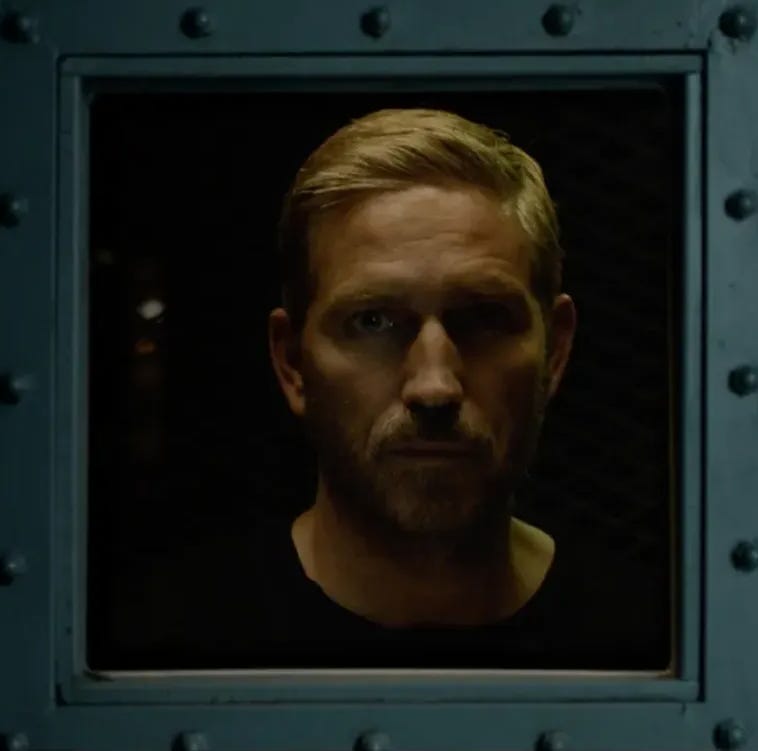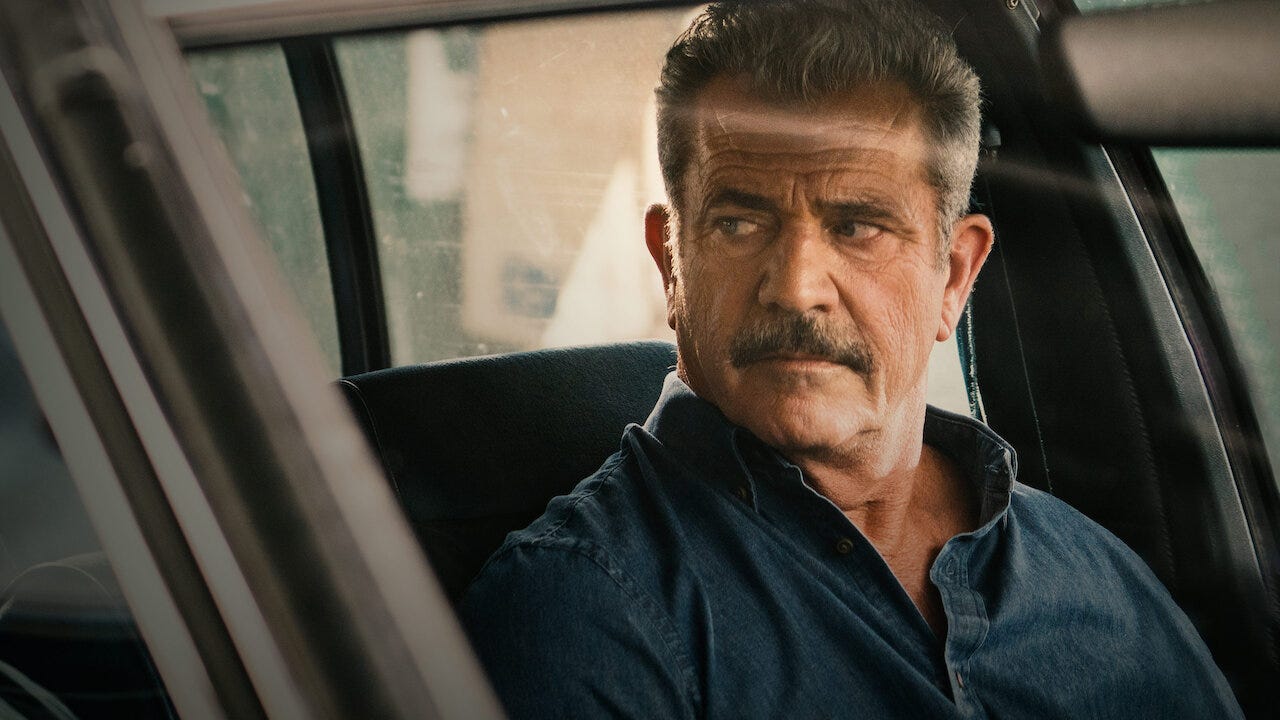Culture Front: Sound of Freedom
A powerful film from an independent studio puts the world on notice, giving the American Right a watershed moment in the battle for America’s soul.

Hollywood has long been known to thumb its nose at the right and the values of conservative America. Whether it be the endless mockery and fear-mongering of Christianity and traditional lifestyles, race-swapping white characters without warning or reason, shoehorning progressive politics and messages into entertainment offerings without regard for its place in the story, or remaking stories with pseudo-intellectual “modern standard” tropes to colonize previously beloved franchises and characters, there is no question where the loyalties of America’s elite lie in the culture wars. And while our ruling class has made it a point of pride to ruthlessly reinforce its control on issues such as race, gender, sexual orientation, politics, history, and other pet causes, there is no topic that seems to spark more of a firestorm of elite consternation than that of child trafficking.
Establishment politicians and their media acolytes have made it their personal mission to diffuse any discussion of child trafficking in the public square, branding any and all mention of such issues as conspiratorial. Anyone who dares to broach the topic and simply ask questions about this demonic practice is libeled as “QAnon”, a favorite catch-all insult for the media and the left to discredit attempts to bring this issue into the spotlight, which you can see in the framing of this article from NPR. It has become a panacea for “things the Regime doesn’t like” in order to denigrate any and all political opposition.
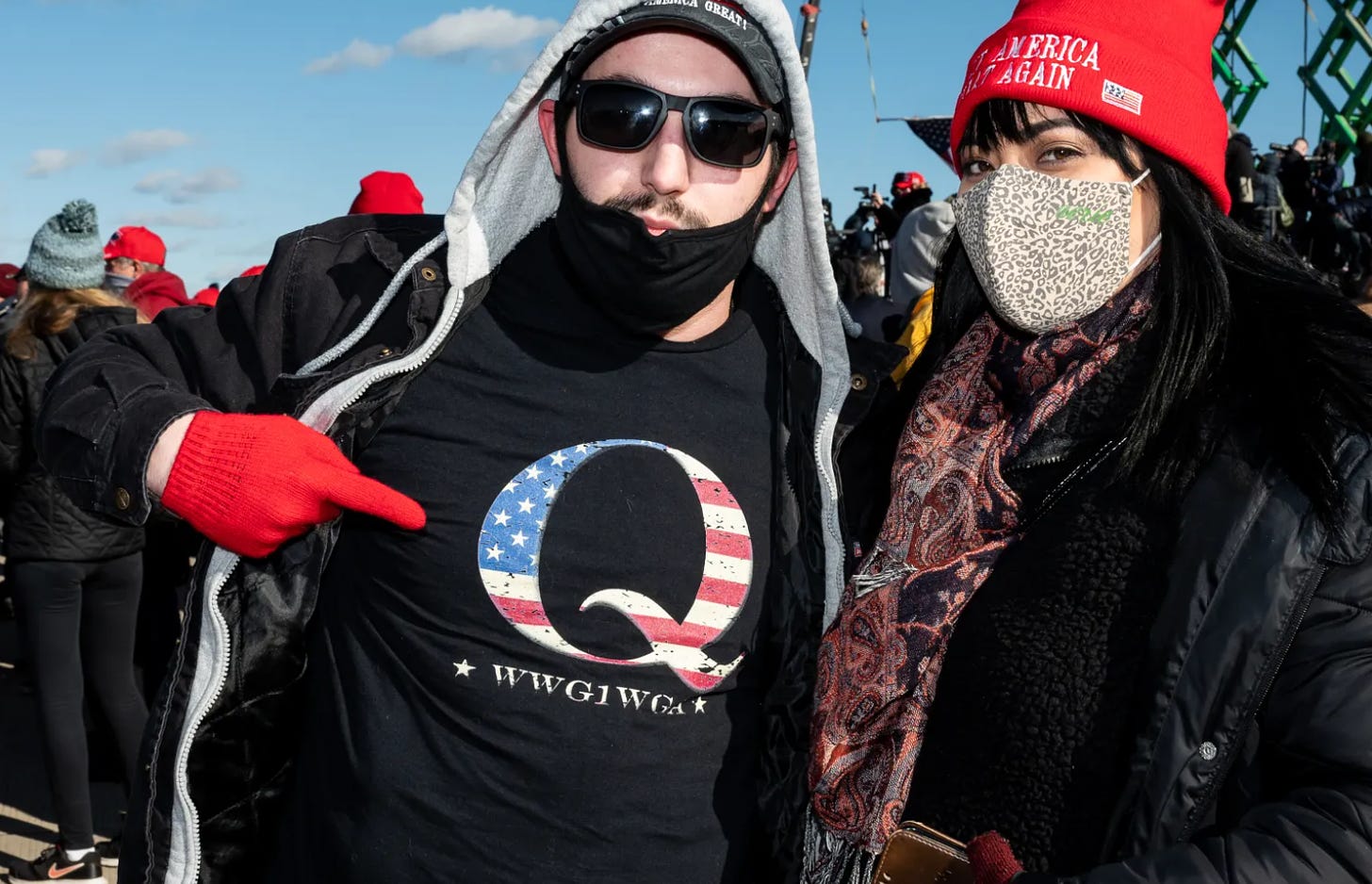
For those of you who are not familiar with the term, “QAnon” refers to a conspiracy theory which originated on the social media site 4chan in 2017. A user named “Q Clearance Patriot” posted a thread titled Calm Before the Storm which theorized that the arrest of Hillary Clinton and a cabal of elites running child sex trafficking rings in secret at the highest levels of government was imminent, and that Donald Trump would lead the charge. Other conspiracies like Pizzagate tied into what Q was positing. Like all conspiracy theories, no matter how outlandish, it held its basis in available information at the time and grew in the uncertainty of classified secrets and inexplicable stories. Pressure from the ruling elites and mainstream media to silence it simply reinforced the theory by creating the appearance of a cover up at the highest levels of government. You can read more on conspiracies, how they form, and more importantly why they form, in this IM-1776 piece on Jeffrey Epstein. They also have an excellent collection on the topic which you can purchase here: as always, I highly recommend their work for anyone who considers themselves a part of the dissident American Right today.
QAnon remained one of many fringe movements in an era of growing media and political malfeasance, and became something to be exploited as a cudgel by the ruling elites to control their right-wing opposition. Labeling someone “QAnon” was equivalent of calling them a nut job. By branding any and all questions related to child trafficking as part of the most extreme conspiracy, it made people think twice about even mentioning the subject. In some cases, the movement itself became less of a story than the political discourse it launched. But with the Harvey Weinstein and Jeffrey Epstein incidents in the following years, the conspiracy label began losing its power. Like all political weaponry, the left responded to this by simply steering into the skid, overutilizing the insult instead of turning their eyes inward to examine why people might be jumping to such conspiracies in the first place. While Weinstein kicked off the #MeToo movement and began a cultural shift in how the nation viewed sexual assault and harassment, Epstein had a very different effect on society.
Epstein ran a high-profile sex trafficking and blackmail operation involving heads of state, corporate bosses, royalty, financiers, and celebrities. He had well-known connections to the intelligence community through his girlfriend and co-conspirator, Ghislaine Maxwell (and her father), both here in the US and abroad in places like Israel and the UK. Using his financial influence, Epstein was able to weasel his way into the upper echelon of America’s champagne class, building a trafficking ring that involved clients flying to his own private island where he conducted operations in the Caribbean. For a full recounting of the Epstein story, I highly recommend listening to the Martyrmade podcast series. It is an unbelievable story with horrific crimes and nauseating behavior by the country’s elite when it comes to the issues of human trafficking and sexual depravity. A forewarning: this subject is not for the faint of heart.
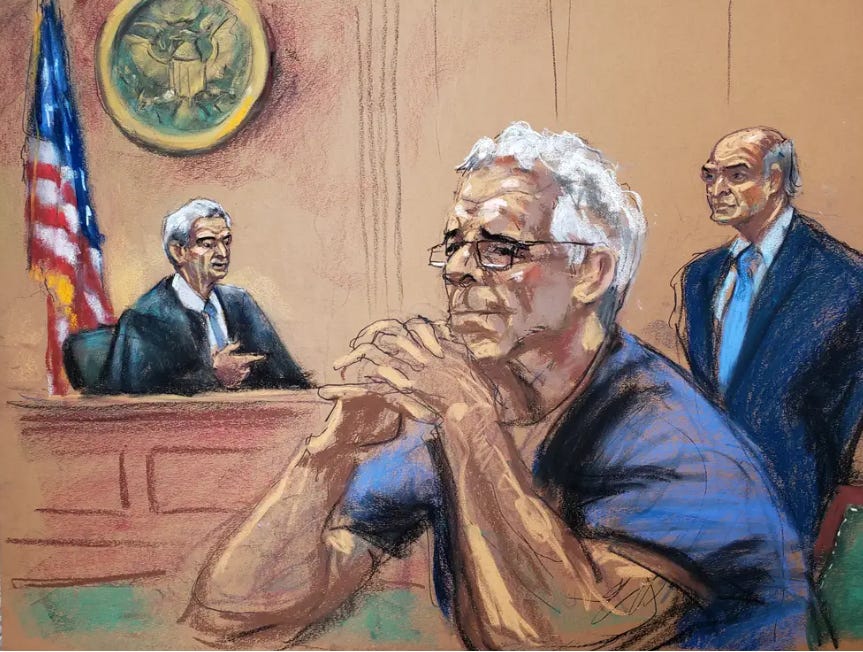
When Epstein was arrested it thrust much of this activity into the spotlight, where it gained momentum off the back of the #MeToo movement’s darling coverage. But answers were much scarcer and sources quieter than we had seen with Weinstein. Information went missing. Sources went dark. People died. When Epstein died in his cell in 2019 under suspicious circumstances, the government and the media circled the wagons to ensure the general public saw his death as a suicide, despite a wealth of evidence that put that conclusion into question. Maxwell was given a speedy trial. Their list of high-profile clients still has not seen the light of day, though the government claims to be releasing more information soon.
People began to seriously question why the ruling elites of the country and their media allies would want to label anyone who questioned the existence of elite sex trafficking rings as a “conspiracy”. It seemed they would do anything to get rid of Trump and his supporters, even if that meant turning a blind eye to sexual degeneracy, crimes against children and human trafficking at the highest levels of power. It became increasingly clear that you didn’t have to believe in a conspiracy theory to see what was going on in elite circles of the country anymore. Regardless of the veracity of theories like Q, something was indeed going on. The fact that the government refused to release Epstein’s client list simply added fuel to the fire.
Then came COVID and a general lull in attention and focus. But all the while, the general public was memeing their frustration online and questioning the motives of a government that refused to shine a light on child sex trafficking among the country’s most powerful individuals. When multiple so-called conspiracy theories such as the COVID lab leak, gas stove bans, Hunter Biden laptop, and more were proven true after the fact, people began to wonder if there was more to the child trafficking story than they were being told too. Having the mainstream press loudly come down on an issue as a “conspiracy” began to seem like a good indication of a serious problem that the Regime simply didn’t want to talk about.
We must also not forget the general mood of the country in this moment. The infamous Catholic Church abuse scandals of years past are still fresh in the minds of parents and have been a significant factor in the growth of irreligiosity in the country. The media is keen to remind the public about this, claiming that the Church is the biggest offender when it comes to child abuse. But studies have found that schools actually account for the largest amount of child abuse cases, above every other institution in the country, including the Department of Education itself which found horrifying results in their 2004 analysis. From Chris Rufo’s article in City Journal:
“With little public pressure to make changes, the public school system has continued to operate with very low standards of enforcement and accountability. Local newspapers continue to report on teachers who are caught sexually abusing students. Some districts simply move abusers from school to school, where they are able to exploit children again. Today, if the Department of Education statistics still obtain, one could estimate that 5 million students are currently being sexually harassed, manipulated, and abused in America’s public school system.”
Pair this with progressive politician’s attempts to normalize pedophilia under the LGBTQ umbrella, along with the recent cultural garbage like the appalling Cuties from Netflix that attempts to sexualize children in the mainstream culture, and the general public was starting to get the sense that something was irreparably and dangerously broken in our society. Additionally, the rise in child grooming at schools across the country and transgenderism’s deranged push for child mutilation surgeries and poisonous sterilization drugs have created a seething resentment and appropriate fear among parents. The political establishment, government, corporations, media and academic institutions have done everything in their power to push and normalize this destructive ideology among the youngest of children. The abuse numbers above don’t even begin to take these instances into account, though they can be just as disgusting and disturbing. In many cases they destroy children for life. I’ve written previously about the dangers of this ideology and its disturbing effects on children, highlighted by the recent Nashville shooting by a transgender lunatic. Enter Sound of Freedom, a film made with the deliberate purpose of exposing everyday Americans to the unspeakable evils of child sexual abuse and human trafficking, into this unique social landscape.
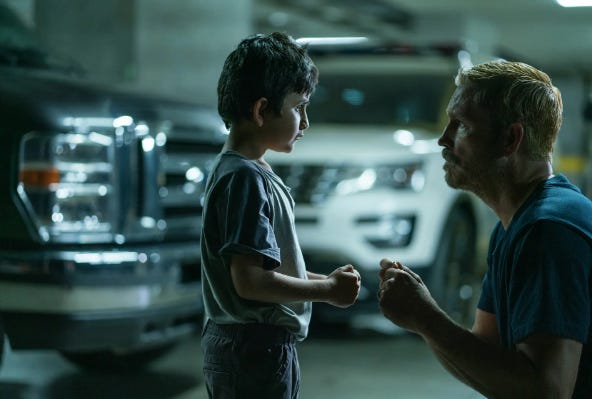
When I saw the film, I was floored at how incredibly powerful it was. This is cinema as an art form at its most effective, and it represents a watershed moment for the American Right. After decades of disrespect and derision, so much denial and mudslinging by the most powerful institutions and people in the country, this cruel and disgusting practice was finally being discussed from the right’s perspective.
It felt like vindication: not of conspiracies, but of the truth which had been deliberately restrained for years by powerful special interests. The film is based on the true story of Tim Ballard, a Department of Homeland Security agent who grows tired of only catching the predators and never freeing any victims due to their oftentimes international status. You can find out more about Tim and his organization O.U.R., Operation Underground Railroad, on their website.
For the media to smear such a film, especially one that was as effective as Sound of Freedom, felt like a confirmation of everything the film was trying to say. That is the power of art and aesthetics: when done right, they can cut through the muddy layers of obfuscation that the powerful use to insulate themselves from criticism and responsibility. The movie worked off of guerilla marketing by its star, Jim Caviezel, and its independent studio Angel Studios. With just a domestic release, the film has already brought in over $150 million in its first few weeks in theaters. Considering the lack of international release, this is extremely impressive for a small-budget movie.
In addition, it faced the uphill battle of corporate and political interests working against it, with the “faith-based” or “Christian” monikers being used to try and denigrate the film’s quality, as such offerings have been lampooned for their B-list tone many times in the past. You have nearly every mainstream media institution working overtime to discredit it due to its content focus. Here are just a few of the most unhinged examples:
“QAnon supporters are promoting 'Sound of Freedom.' Here's why” - NPR
“‘Sound Of Freedom’ Is a Superhero Movie for Dads With Brainworms” – Rolling Stone
“I Saw the Grim Child-Trafficking Movie That’s Filling Theaters: People acted like they were at Top Gun.” - Slate
“QAnon and ‘Sound of Freedom’ Both Rely on Tired Hollywood Tropes” - Bloomberg
It's a miracle it's done as well as it has considering the attempts to kill it in its crib, which is a testament to the movie's quality. When discussing film quality, it’s important to remember that quality can have many meanings. It might not always mean a complete masterpiece. To me, film quality means whether or not the film meets the following criteria:
Did the film catch audience’s attention? (The question of “entertainment”)
Did the film retain the audience’s attention? (The question of “riveting”)
Was the film well-made? (The question of “aesthetics”)
Was the film achieve in its artistic purpose? (The question of “success”)
Did the film have a wide reach of viewership? (the question of “performance”)
“Entertainment” often can refer to a hook: a trailer, an advertisement, or a groundswell of grassroots support for a movie. You have seen this with the Barbie and Oppenheimer movies, which reaped the benefits of an organic meme phenomenon known as “Barbenheimer”, where moviegoers excitedly committed to seeing the two widely different films back to back. Sound of Freedom scored well here by daring to cross a taboo in broaching a forbidden subject, and bringing attention to the cause of innocent victims around the world.
"Riveting" can be achieved by focusing on making stunning visuals and high art, relatable characters, well-written plots, a beautiful score, or a once in a lifetime acting performance. Movies like The Godfather or Taxi Driver glue us to our seats because they are anchored by incredibly tense writing, impressive direction, and world-class acting. Epics like The Northman and Gladiator floor us with beautiful set pieces, climactic battles, and inspiring stories. Magnum opus works like Michael Mann’s Heat – with its incredible cast and infamous L.A gun battle; Steven Spielberg’s Saving Private Ryan – with its Normandy opening sequence and gripping heartfelt story; Paul Thomas Anderson’s There Will be Blood – with its masterclass in acting from Daniel-Day Lewis and fascinating characters; all present a complete package of these different aspects that contribute to the riveting factor. The end result: you think deeply about the film, its characters, its story and its purpose. You refuse to get up for a bathroom break. You sit on the edge of your seat. You talk about the film for days afterwards. Sound of Freedom achieves this in with compact but relatable characters, a subtle but emotional performance from Caviezel and the supporting cast, and an emotional connection to its audience.
“Aesthetics” means “a set of principles concerned with the nature and appreciation of beauty, especially in art”. In this case, it refers to a film’s look and feel: its cinematography, its set pieces, its costuming, its location choices. Even casting is an aesthetic choice. Directors like Christopher Nolan and Denis Villeneuve often make deliberate aesthetic choices, such as to capture scenes on 70-millimeter film and refusal to use digital effects for the majority of his work (such as the use of real explosives to recreate the look and feel of the Los Alamos nuclear weapons test in his recent film Oppenheimer) despite the difficulties of working with older technology because it brings a certain feel to the movie that cannot be achieved in digital post production. In some cases, producers and directors have even run chemical reactions on film itself in order to give it certain characteristics that change how the film feels and looks. In Sound of Freedom, despite the lower budget and despite coming from an independent studio, puts forward a solid offering with good cinematography, costuming, makeup, scene locations, and set pieces. They are able to put you into the places the film takes you with ease, and the aesthetic choices lend a feeling of malaise that mirrors society’s own apathy towards the issue. In this way, the aesthetic choices support the film’s mission and are artistically consistent.
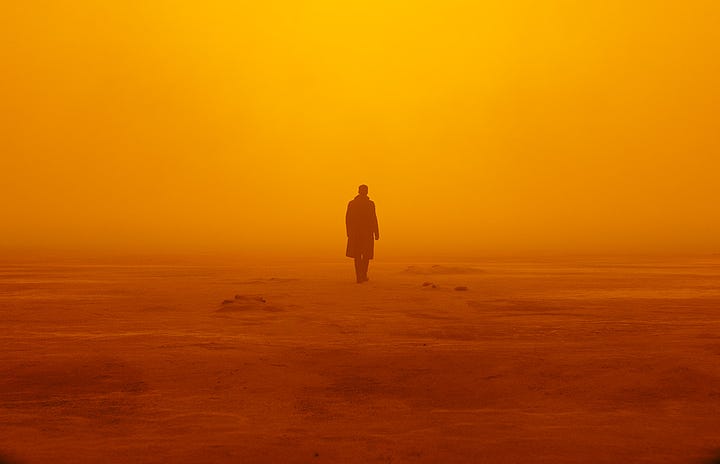
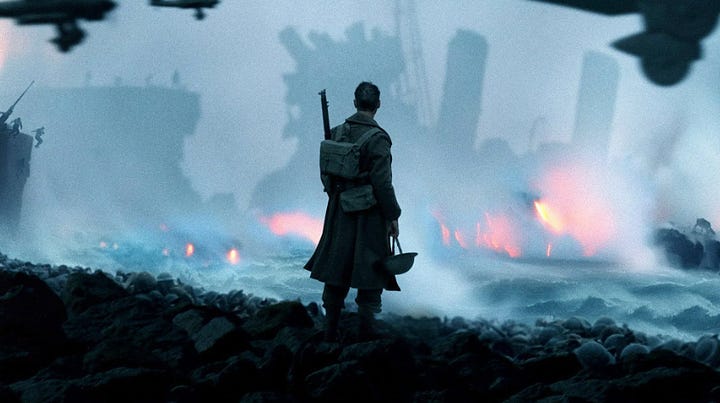
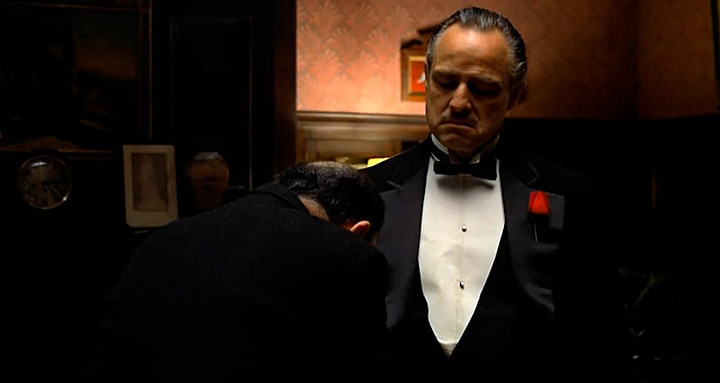
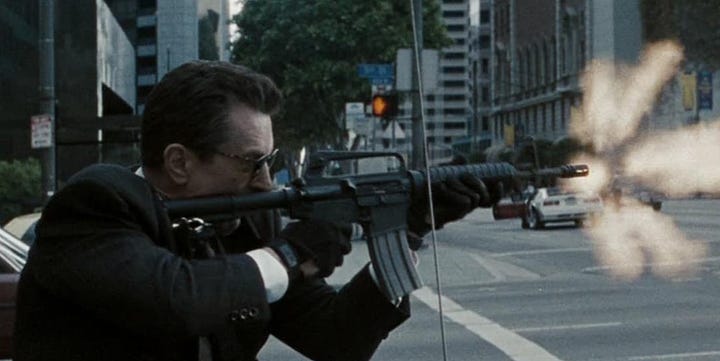
“Success” boils down to the purpose of the film. What was it trying to say, if anything? Was it simply for entertainment purposes, like the Fast and Furious franchise? Is it trying to get you hooked into a wider web of content like the Marvel Cinematic Universe? Was it vying for Oscar contention, or trying to bring attention to a historical issue like Schindler’s List? In Sound of Freedom, success means that you are fully exposed to the uncomfortable truth the film is revealing to you. From its nauseatingly uncomfortable opening half hour to the very end, Sound of Freedom forces you to acknowledge an evil that has been hidden beneath the surface of our wealthy and comfortable modern society. Just as Caviezel’s character endures the humiliation of a culture that has resigned itself to managing the problem, the audience is forced to endure the pain of the truth, that our apathy and inaction has caused this and put the lives of the most innocent among us in grave peril.
“Performance” doesn’t necessarily mean it has to be a box office home run, though that can be one of the tools of measurement. There are many great films that perform poorly at the box office for whatever reason, but become cult classics months, years, or decades later. A great example of this is Blade Runner 2049, which made $267.7 million on a budget north of $150 million. While not a dud, it certainly didn’t make waves financially. However, the movie has since become a cult classic much like its predecessor, and is arguably one of the most important and prescient films made in the last decade. Sound of Freedom’s performance can be measured in a few ways. First, in its raw financial impact. On a small budget just north of $14 million, the film has already made nearly ten times it’s budget with total returns over $150 million (keep in mind, this is on a domestic-only initial release). Second, in its social impact. Everyone is talking about this movie, even those who sought to stifle it. The adage “all press is good press” doesn’t always apply, but it certainly does here. The film’s goal was to start a national conversation about the issue, and it has done that.
The movie as a work of art is powerful and viciously effective in achieving its goal. Caviezel’s post-credit message was a perfect way to end it, and reminded me a bit of Tom Cruise's message to fans about the importance of the film and the hard work that went into creating it before Top Gun Maverick. There is so much care and passion in this work, you'd have to be an idiot to miss it. It is also well made: the cinematography is high quality, the filming, acting, and set pieces are all very well done. The plot grips you. There are some pacing and character development issues, but nothing significant enough to take away from the film's objective. For a film like this, those issues don't matter. The characters we see and spend time with are secondary to the message and the characters - children - being rescued.
This is by design (Caviezel mentions this in his message) and pushes you deeper into the experience. The pacing, slow at times and jumpy at others, disorients you to its advantage. Just when you think it's over or you're safe as a viewer, you aren't. That's also kind of the point, whether intended or not. It isn't perfect but who cares, it doesn't need to be! The goal of the film is to show you an ugly truth, a problem no one wants to discuss or see, one not fit for polite discussion. To do that, you need to have all distractions taken from you and to be pushed face first into the mud of this evil. That's what the film does. For the life of me, I can't understand anyone who saw this and chooses to knock it beyond the typical film criticism elements. Those who do (Regime-friendly media, political enemies of the right, and those with clear motives in their support of moral decline) may be accidentally revealing more about themselves and their motives than they intend. Perhaps we should wonder what it is about this subject matter that makes them react in such a way, that they would be angry with the people trying to bring attention to this sickening and repugnant crime…
The first half hour is hard to watch. It will make you look away, cry, seethe and gasp. Just as Caviezel’s character when he is forced to catalogue the materials of the evil, vile pedophiles he is hunting, the audience is made to feel the discomfort of his character through its cinematic choices: most importantly, without gratuity and without platforming it.
The film challenges you. This is an effective device to immerse you into the world of the film (which is also our own world, crucially), to sympathize with the plot and characters. It throws you in kicking and screaming without pretense, fluff, filler, exposition, action, or grandiosity. I am reminded a bit of Craig Zahler's Dragged Across Concrete, starring Vince Vaughn and Mel Gibson, which throws us into the chaos of a seedy world, fallen to corruption and fear, one that is unfeeling and indifferent to suffering, with characters struggling to cope with its consequences. Dragged Across Concrete is a very different story and a very different film, but there are elements that brutalize the audience in similar ways, to shock you and expose something about not only the characters but the world itself.
Forcing the ugliness of the outside world onto the audience causes consternation and discomfort - brilliantly so - to get you to understand the stakes, flipping the normal movie-going paradigm of escapism. I have not felt this tense in a movie theater in years. And that was the point of the film: to rivet you to your seat and make you understand what's going on outside the theater, right now, at this very moment, on an unimaginable scale. Powerful stuff.
It's not a masterclass like The Godfather, an action miracle like Heat, or a timeless epic like Lord of the Rings, but it doesn't have to be. In fact, doing anything like that might be detrimental and distracting. It's multi-genre, with elements of docudrama, heist, political thriller and horror. We must appreciate this for what it is and not use the left's measuring sticks, which are designed to keep right-wing art in a second class tier. Who cares if it doesn't win best cinematography or get nominated for best supporting actor? That's not why the movie was made. It was made to bring an issue into the cultural zeitgeist, and it has. For however long this film is in theaters, people must discuss it. That's the point. And for the right’s battle on the culture front, that's huge. For a few months, one of our issues is finally in the spotlight, flipping the script.
Similar to Trump's gravity well, which absorbed constant attention and allowed him to a brief feeling of parity with the elites, media, academics and other leftists who hate our values, this movie forces those same people to talk about major problems that they've chosen to ignore or outright promote: moral decline, pedophilia, human trafficking and child abuse. The media can yell "QAnon!" all they like, but a movie this potent is able to cut through the usual Regime propaganda and overwhelm the system. That's why this movie is so important. It simply rips the wool off your eyes, no matter how loudly Regime rags like NBC, Washington Post, or Slate all cry about it.
For a few months, there is nothing they can do. They can't censor it, they can't gatekeep it, they can't shout it down. They can't restrain people from going to see it, they can't financially cripple it – they can't even stop themselves from talking about it! Their tantrums and winging are impotent and useless. Every article that comes out saying the film’s basis is a “conspiracy” (which is nonsense, as it is based on a verifiable true story) simply reinforces the point the movie is trying to make. The media’s rage vaporizes like the morning fog when burned away by the harsh light of the truth and financial success of the film. It’s glorious. Bask in it.
For a few months, exploited children are finally discussed in the open and a mirror is held up to our broken, degenerate society. Hopefully this can be used to bring about true social change and translate into political action, but such a monumental task is not for the artists. Artists simply reflect society back towards itself in creative ways. And for a few months, that’s exactly what Sound of Freedom has done. What we see in the film and how we take it from there is up to us. Let’s not waste it.
For a few months we have the power the enemy desperately seeks to wield against us. For a few months we win. That's cinema: and that's priceless.



